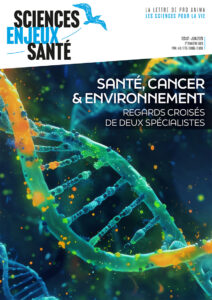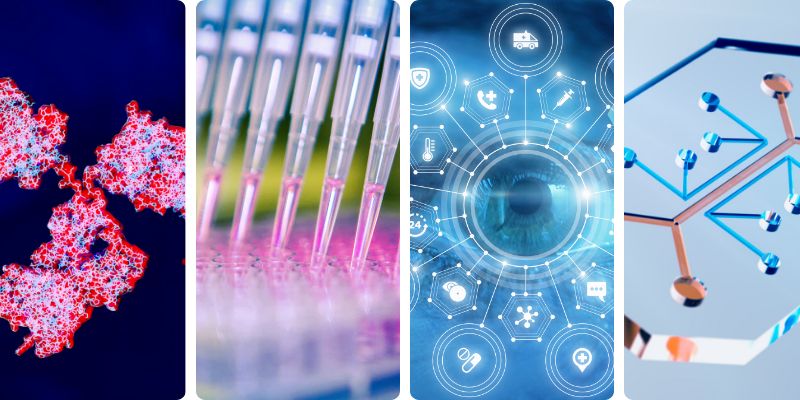
JRC 2023 report on non-animal methods, Dutch government invests 124.5 million euros in animal-free innovation, AI can differentiate sex from brain scan, and more
News on non-animal methods
MARCH 18 - 22, 2024NEWS, REPORTS & POSITION STATEMENTS
1. New JRC Publications Repository on Non-Animal Methods in Science and Regulation
The 2023 EURL ECVAM Status Report outlines research and development activities, along with initiatives that foster the implementation and utilisation of non-animal methods and approaches in scientific research and regulation.
New approach methodologies encompassing a range of innovative technologies are developed, evaluated, and integrated into assessment frameworks in order to enhance the efficiency and effectiveness of hazard and risk assessment of chemicals and products across various regulatory contexts. Furthermore, substantial efforts are directed at promoting the development and utilisation of non-animal approaches in fundamental and applied research, where the majority of animal testing occurs, as well as for educational purposes. The achievements and accomplishments documented in this report are the culmination of collaborative efforts with EURL ECVAM’s dedicated partners and stakeholders.
The Joint Research Centre (JRC) provides independent, evidence-based science and knowledge, supporting EU policies to positively impact society.
2. Dutch government invests in animal-free innovations
The Dutch National Growth Fund will invest 124.5 million euros in a new centre for animal-free biomedical testing. Of this investment, 55 million euros are awarded directly and 69.5 million euros are granted subject to conditions. Known as the Centre for Animal-Free Biomedical Translation (CPBT), its aim is to generate safer, more effective treatments, while reducing animal suffering.
“Models based on patients’ own tissues provide a better picture than animal models” - Jeffrey Beekman, Professor of cellular disease models.
3. Healthcare innovation moves fast – so should the European regulatory system by Sabine Atzor and Alan Morrison
What will the innovations of tomorrow look like and how can they be regulated effectively without delaying access ?
This is a key question facing policymakers as they aim for EU competitiveness while ensuring patients get new technologies that address their needs. One of the most exciting ‒ and challenging ‒ features of today’s research landscape is the potential to tap into the combined power of advances in diagnostics, therapeutics and new data and digital tools, including artificial intelligence (AI), to create integrated healthcare solutions.
About the authors : Sabine Atzor is Head of EU Regulatory Policy at F. Hoffmann-La Roche Ltd since 2010. Alan Morrison is Vice President of Regulatory Affairs international at MSD and has served as the Chair of EFPIA’s Regulatory strategy Committee since 2018.
INTERVIEWS, NOMINATIONS & AWARDS
4. Prof. Anna Maria Bassi : recipient of the first edition of the AnimaLAV Award
Prof. Anna Maria Bassi, member of the European Society of Toxicology In Vitro (ESTIV) since 2000, has been recognized with the prestigious AnimaLAV Award in the category Researchers and Innovators.
Her outstanding contribution to advancing research through innovative in vitro models and her dedication to nurturing the next generation of researchers have earned her this well-deserved honour.The AnimaLAV Awards, encompassing categories such as Active Citizenship, Journalists and Opinion Leaders, Institutions and Justice, and Researchers and Innovators, celebrates individuals who demonstrate exemplary commitment and excellence in their respective fields.
5. A QMUL team awarded £7 million to train next generation of organ-on-a-chip scientists and bioengineers
A team of bioengineers at the Queen Mary University of London (QMUL), led by Professor Hazel Screen, have been awarded a £7 million grant to establish an EPSRC Centre for Doctoral Training (CDT) in Next Generation Organ-on-a-Chip Technologies.
The doctoral training programme will combine cutting-edge research with industry engagement, offering sixty or more industry-linked PhD students the opportunity to develop the skills and knowledge required to translate research into real-world applications. This grant will train future leaders in the rapidly expanding field of organ-on-a-chip technology. This technology is poised to revolutionise pre-clinical drug testing, speeding up the delivery of safer, more effective medicines and reducing the use of animal testing.
SCIENTIFIC DISCOVERIES & PROTOCOLS
6. An AI can determine the sex of an individual from brain scan
A new study by Stanford Medicine investigators unveils a new artificial intelligence model that was more than 90% successful at determining whether scans of brain activity came from a woman or a man. This breakthrough supports the theory that significant sex differences in brain organization exist, challenging long-standing controversies.
The AI model focused on dynamic MRI scans, identifying specific brain networks — such as the default mode, striatum, and limbic networks — as critical in distinguishing male from female brains.
This research not only deepens our understanding of brain development and aging but also opens new avenues for addressing sex-specific vulnerabilities in psychiatric and neurological disorders.
UPCOMING WEBINARS, WORKSHOPS, SYMPOSIA
Check out our events interface


